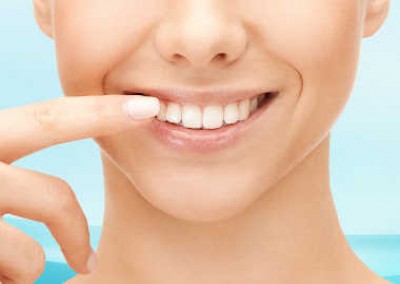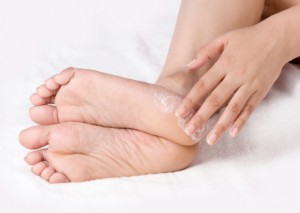
image: istock
Article posted by BR Natalie
Sometimes in life a girl just has to fake it.
Obviously we're talking about our nails. Whether you're struggling to grow your nails or your real nails just don't look the part for a special occasion, falsies are a great way to give your hands a lift. But like every beauty treatment these days - the options of false nails to choose from is vast!
We caught up with BR Zoe to ask her to take us through the four choices you're likely to face when opting to fake it!
Acrylic
Acrylic nails have been around for a long time - they're a standard in most nail bars and salons due to their ongoing popularity. A liquid monomer and a powder polymer are combined to create a hard protective layer over your natural nails. The smell of the chemicals can be quite intense, but as long as the area is well ventilated it isn't harmful, although pregnant women are advised to skip acrylics for 9 months!
Your natural nails will be scuffed before the application of the acrylic and usually a plastic tip will be fixed to your natural nail tips. Acrylics harden when exposed to air and can then be filed to your desired length and shape. They leave a great base for nail art and polish.
Maintenance of Acrylic Nails:
- Acrylic nails need 'filling in' every 2 - 3 weeks. Your nail technician will file down the base edge (nearest the nail bed) and fill the gap with fresh acrylic.
Removal of Acrylic Nails:
- Your nail technician will easily remove the nails by soaking them in nail polish remover for 15 minutes.
Pros of Acrylic Nails:
- They are available in most nails bars or salons.
- They are the longest lasting and most hardwearing of false nails.
- They are generally these are cheaper than gel nails.
Cons of Acrylic Nails:
- The scuffing of the nails before application can damage and weaken the natural nail.
- They don't look as natural as gel nails.
- If applied poorly they can be quite thick.
- Fungal infections commonly occur if proper aftercare isn't maintained and water is allowed to pool under the acrylic.
Gel Nails
Gel nails are formed by applying a premixed, liquid chemical gel to your natural nails. They are usually 'set' under UV light and can be shaped and styled as you wish. Non-UV gels are available and are 'set' by applying a chemical activator over the gel or by using LED lamps. The nail bed doesn't need to be scuffed or roughened as with acrylics.
Maintenance of Gel Nails:
- Similar to acrylics, gels grow out with your nails and need to be filled in every two to three weeks, by filing down the base edge and filling the gap.
Removal of Gel Nails:
- Gel nails usually need to be removed by allowing them to grow out and/or being filed down, meaning you will need a nail technician to remove them.
Pros of Gel Nails:
- They are more natural looking than other kinds of false nails.
- They aren't as odourous as acrylics.
- They are less damaging to your natural nail.
- They involve less damage to natural nail.
- They maintain their colour longer without chipping.
- They set (or 'cure') more quickly than acrylics.
Cons of Gel Nails:
- They are generally more expensive than acrylics.
- They shouldn't be removed by chemical means - they should be allowed to grow out and filed down for removal.
- There is a concern with exposure to UV light.
- There is the risk of a fungal or bacterial infection if the nail lifts.
- They aren't as durable as acrylic nails
Wraps
Nail wraps are fine fibrous layers, made of silk, tissue, fibre glass or linen, that are attached to the nail using a nail glue. They are used most often for repairing broken fingernails or nail tips, but can be used for nail extensions and to strengthen tips.
Maintenance of Nail Wraps:
- Wraps are temporary fixes - they will loosen within 2 to 3 weeks. Your nail tech will remove and reapply as necessary at your next appointment.
Pros of Nail Wraps:
- They don't cause much damage to natural nails.
- They are fantastic for repairing nails.
Cons of Nail Wraps:
- They won't withstand as much wear and tear as other types of falsies.
- The nails aren't removed by chemical; they must grow out and reapplied.
Press Ons
Press Ons or Stick Ons are the DIY false nails you'll find in beauty departments and chemists. They stick to your nails with either a double sided tape or nail glue. There's no real maintenance or removal protocol, because they'll more than likely fall off within a few days!
Pros of Press Ons:
- They are inexpensive and easy to find locally..
- They are easy to apply at home.
- They're a great quick fix for when you can't get in to the salon.
Cons of Press Ons:
- They will last a few days, if that.
- They will not withstand any heavy manual activity.
- They aren't going to look super natural.
BR Zoe's top tips for false nails:
- If you want the job done properly, go pro. Ask around and remember, when it comes to nails, you generally get what you pay for.
- Seek out certified nail technicians - nails that aren't applied correctly will cause damage and carry a higher risk of infection.
- Ensure the salon is hygienic. Tools should be disinfected between clients and the work area (and entire salon) should be spotless.
- Ask questions - ask your technician what they're doing, why and how you should care for your nails in between visits.
- Don't pick and pull at your nails. The bond created by the chemicals is strong - it's supposed to be. If you want healthy looking nails, go back to your nail tech for removal.
- Don't try to repair a nail yourself unless you're confident you can. Going back to the pros and lessen the risk of an infection.
- False nails shouldn't hurt - if they do, tell your tech!
- If you develop rashes around your fingertips, face or any other part of your body you touch with your nails, consider you might be allergic to one of the ingredients.
- Don't let your tech push back or cut your cuticles - they have a purpose - they're a seal to prevent infections between your nail and skin. Look after your cuticles by massaging cuticle oil into them daily.
- Give your nails a rest every few months to help prevent infections.
- Don't use your nails as tools - you've paid for them, so look after them!
So 'fess up - do you fake it? Are you a regular at the nail bar, or are false nails an occasional treat for a special event? What kind do you opt for and why? And if you've never faked it, what's stopping you?
Get chatting below!













I've had acrylics a few times over the years & they definitely weakened my natural nails. Ive actually grown mine now so don't need fakes however I did always want to try gel nails and might still do one day.